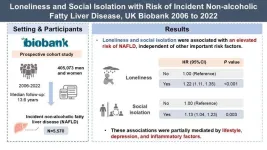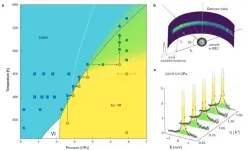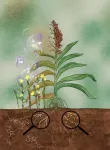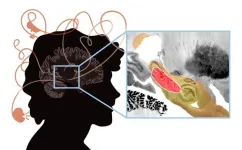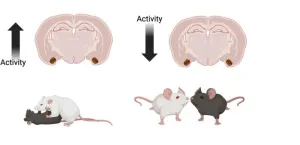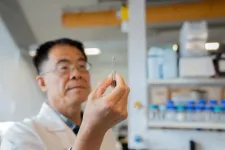(Press-News.org) Under embargo until 12/02/25 12:00PM EST/17:00PM GMT
It’s been a long-held belief that absolute pitch - the ability to identify musical notes without reference - is a rare gift reserved for a select few with special genetic gifts or those who began musical training in early childhood. However, new research from the University of Surrey challenges this, demonstrating that adults can acquire this skill through rigorous training.
The study involved a diverse group of 12 adult musicians, with varying levels of musical experiences, who participated in an eight-week online training program. Unlike previous studies, this training encouraged learning the pitch class - what absolute pitch is really about - rather than specific pitch heights. It also minimised the reliance on relative pitch strategies, such as comparing notes mentally with external cues and feedback during tests, to determine the correct answers. Additionally, to minimise the chance of accidental success, participants were required to complete the final level of training multiple times.
Despite the widespread belief that absolute pitch is impossible to learn in adulthood, participants made significant progress, learning to identify an average of seven musical pitches with 90% accuracy or higher. Notably, two participants achieved fast and accurate performance with all twelve pitches comparable to those naturally possessing this skill in the real world.
Dr Yetta Wong, principal investigator and lecturer and the University of Surrey said:
"Our findings provide compelling evidence that absolute pitch is not limited to a select few. With focused training, adults can acquire this remarkable skill, much like how they learn other complex cognitive skills.”
Dr Alan Wong, co-author of the paper and senior lecturer at Surrey’s School of Psychology added:
"This research has significant implications for our understanding of musical cognition and learning and opens doors for musicians of all ages to explore and develop their musicality to its fullest potential."
[ENDS]
Dr Yetta Wong and Dr Alan Wong are available for interview, please contact mediarelations@surrey.ac.uk to arrange.
The full paper will be available at Psychonomic Bulletin & Review https://doi.org/10.3758/s13423-024-02620-2
Images of Dr Yetta Wong and Dr Alan Wong are available upon request.
END
Adults can learn absolute pitch: new research challenges long-held musical belief
2025-02-12
ELSE PRESS RELEASES FROM THIS DATE:
Loneliness and social isolation linked to increased risk of non-alcoholic fatty liver disease, study finds
2025-02-12
Loneliness and social isolation have been linked to an elevated risk of non-alcoholic fatty liver disease (NAFLD), according to a groundbreaking study conducted by researchers from Central South University and the Army Medical University in China, in collaboration with the Karolinska Institutet in Sweden. Published in Health Data Science, the study analyzed data from over 400,000 participants in the UK Biobank, shedding light on the far-reaching impacts of social factors on liver health.
The research team, led by Professor Jiaqi Huang and Professor Jin Chai, sought to explore whether loneliness and social isolation—two ...
Exotic observations with neutrons at the ILL
2025-02-12
In everyday life, we typically encounter water in one of three familiar states – solid, liquid or gas. But there are in fact many more phases, some of which – predicted to exist at high temperature and pressure – are so strange they’re referred to as exotic. State-of-the-art neutron spectrometers and sample environment infrastructures at the Institut Laue-Langevin (ILL) have enabled the first experimental observation of one of these exotic phases – plastic ice VII.
Plastic ice VII was originally predicted more than 15 years ago by molecular dynamics ...
Scientists discover new gene-to-gene interaction increasing risk of alopecia
2025-02-12
Scientists have discovered an interaction between genes that increases the risk of developing a type of alopecia.
In a new JAMA Dermatology study, scientists at King’s College London found that changes in two parts of the genome work together to influence alopecia risk.
Frontal fibrosing alopecia (FFA) is a highly distressing dermatological disorder which is associated with inflammation, scarring and irreversible hair loss. The disease affects an increasing number of patients worldwide and is caused by genetic and environmental factors.
The study authors conducted a meta-analysis of four cohorts ...
Chinese scientists find key genes to fight against crop parasites
2025-02-12
Chinese scientists have identified two key genes responsible for sorghum's resistance to Striga, a parasitic plant that causes significant crop losses. The breakthrough, which also highlights the potential of AI to predict key amino acid sites in strigolactone (SL) transporters, could have wide-ranging applications in enhancing parasitic plant resistance across various crops.
This study, published in Cell, was conducted by Prof. XIE Qi's team at the Institute of Genetics and Developmental ...
Lung cancer cells can go ‘off grid’
2025-02-12
Francis Crick Institute press release
Under strict embargo: 16:00hrs GMT Wednesday 12 February 2025
Peer reviewed
Experimental study
Animals, people and cells
Researchers from the Francis Crick Institute have found that some particularly aggressive lung cancer cells can develop their own electric network, like that seen in the body’s nervous system.
This unique property could make them less dependent on the environment surrounding the tumour and even spread more easily.
Small cell lung cancer (SCLC) is one of the hardest types of cancer to ...
An RNA inhibitor may effectively reduce a high-risk type of cholesterol in patients with cardiovascular disease
2025-02-12
The RNA inhibitor olpasiran significantly reduces a type of “bad cholesterol” that’s associated with a high risk of cardiovascular events, according to results from an analysis by a Mount Sinai researcher of a phase 2 trial. The study reported that higher doses of olpasiran lowered the type of cholesterol called lipoprotein(a) [Lp(a)] by more than 95 percent in participants with atherosclerotic cardiovascular disease. Findings were published February 12, 2025, in JAMA Cardiology.
“Our study is the first clinical trial to investigate the association between oxidized phospholipids on lipoprotein(a) and inflammatory mediators,” says ...
Research spotlight: Mapping lesions that cause psychosis to a human brain circuit and proposed stimulation target
2025-02-12
Andrew Pines, MD, MA, a resident in the Department of Psychiatry at Brigham and Women’s Hospital and a researcher in the Center for Brain Circuit Therapeutics, is the lead author of a paper published in JAMA Psychiatry, Mapping Lesions That Cause Psychosis to a Human Brain Circuit and Proposed Stimulation Target.
Shan Siddiqi, MD, Assistant Professor of Psychiatry at Harvard Medical School and Director of Psychiatric Neuromodulation Research at the BWH Center for Brain Circuit Therapeutics, is the senior author of this ...
New study identifies brain region that can prevent aggressive social behavior and induce pro social behavior
2025-02-12
**MEDIA ADVISORY**
UNDER EMBARGO UNTIL: Wednesday, February 12 at 11am EST
Nature article entitled:
A critical role for the cortical amygdala in shaping social encounters
[https://doi.org/10.1038/s41586-024-08540-4]
Bottom Line: Neural activity in the cortical amygdala determines whether mice engage in aggressive or pro-social behavior
Results: By performing a network analysis on whole-brain activity of male mice, we identified the cortical amygdala – an olfactory cortical structure – as a key brain region in promoting aggression. This brain region is activated by olfactory cues from male mice and by aggressive ...
Telehealth may be closing the care gap for people with substance use disorder in rural areas
2025-02-12
Recognition of telehealth as an effective strategy for delivering treatment for substance use disorder (SUD) has raised hopes for improving access to this treatment in settings with limited transportation or when time constraints compromise regular use of consistent access to in-person substance use treatment.
But the findings from a team of researchers from the Virginia Center for Health Innovation, UCLA, RAND, and MedInsight, Milliman Inc., suggest that the promise of telehealth may vary by insurance and geography.
New research suggests that people who live ...
Stronger, safer, smarter: pioneering Zinc-based dissolvable implants for bone repair
2025-02-12
Monash research could transform how broken bones are treated, with the development of a special zinc-based dissolvable material that could replace the metal plates and screws typically used to hold fractured bones together.
Surgeons routinely use stainless steel or titanium, which stay in the body forever, can cause discomfort and may require follow-up surgeries. A new zinc alloy, designed by Monash biomedical engineers, could solve these problems by being mechanically strong but gentle enough to degrade safely over time while supporting optimal healing.
A study published today in Nature shows the research team’s innovative ...
